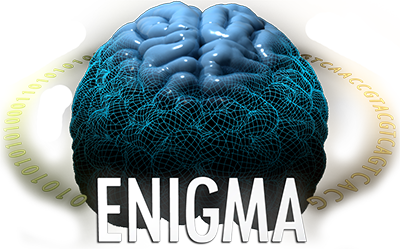 Hippocampal sclerosis (HS) is a common feature of localisation-related epilepsies (LREs), present in 50-75% of all surgical resections in the disorder. However, the underlying cause of HS is debated. Animal models and post-mortem cell counts suggest that HS can result from recurrent epileptogenesis, but some MRI investigations have highlighted a familial component to HS and concomitant neuronal loss within hippocampal regions. Recently, the ENIGMA consortium identified a number of genome-wide significant signals correlating with hippocampal volume in an investigation of 29,037 individuals (‘ENIGMA2′ – in publication).
Hippocampal sclerosis (HS) is a common feature of localisation-related epilepsies (LREs), present in 50-75% of all surgical resections in the disorder. However, the underlying cause of HS is debated. Animal models and post-mortem cell counts suggest that HS can result from recurrent epileptogenesis, but some MRI investigations have highlighted a familial component to HS and concomitant neuronal loss within hippocampal regions. Recently, the ENIGMA consortium identified a number of genome-wide significant signals correlating with hippocampal volume in an investigation of 29,037 individuals (‘ENIGMA2′ – in publication).
In this joint collaboration between ENIGMA and the International League Against Epilepsy (ILAE), we will explore the hypothesis that variants predisposing en masse to changes in hippocampal volume may, in turn, contribute to epilepsy predisposition. To test this, we will summarise variation across nominally-assocated ENIGMA SNPs into quantitative ‘polygenic risk scores’ (PRS), weighted for local linkage disequilibrium and effect size, and relate these scores to disease state in (i) a cohort of approximately 6,000 epilepsy samples, (ii) a sub-cohort of ~1,654 MRI-negative (‘non-lesional’) LRE patients, (iii) a sub-cohort of ~764 LRE patients with abnormal MRI findings (‘lesional’ epilepsy patients), a sub-cohort of ~2,606 genetic generalised epilepsies (GGEs) and (v) an independent sample of <20,000 healthy controls.
Analysis is currently underway across a number of ILAE sites at Hong Kong, Philadelphia, Melbourne, London, Brussels and Dublin.

For further information on the ENIGMA-ILAE collaboration, please contact Christopher Whelan ([email protected]).
ENIGMA on social media: